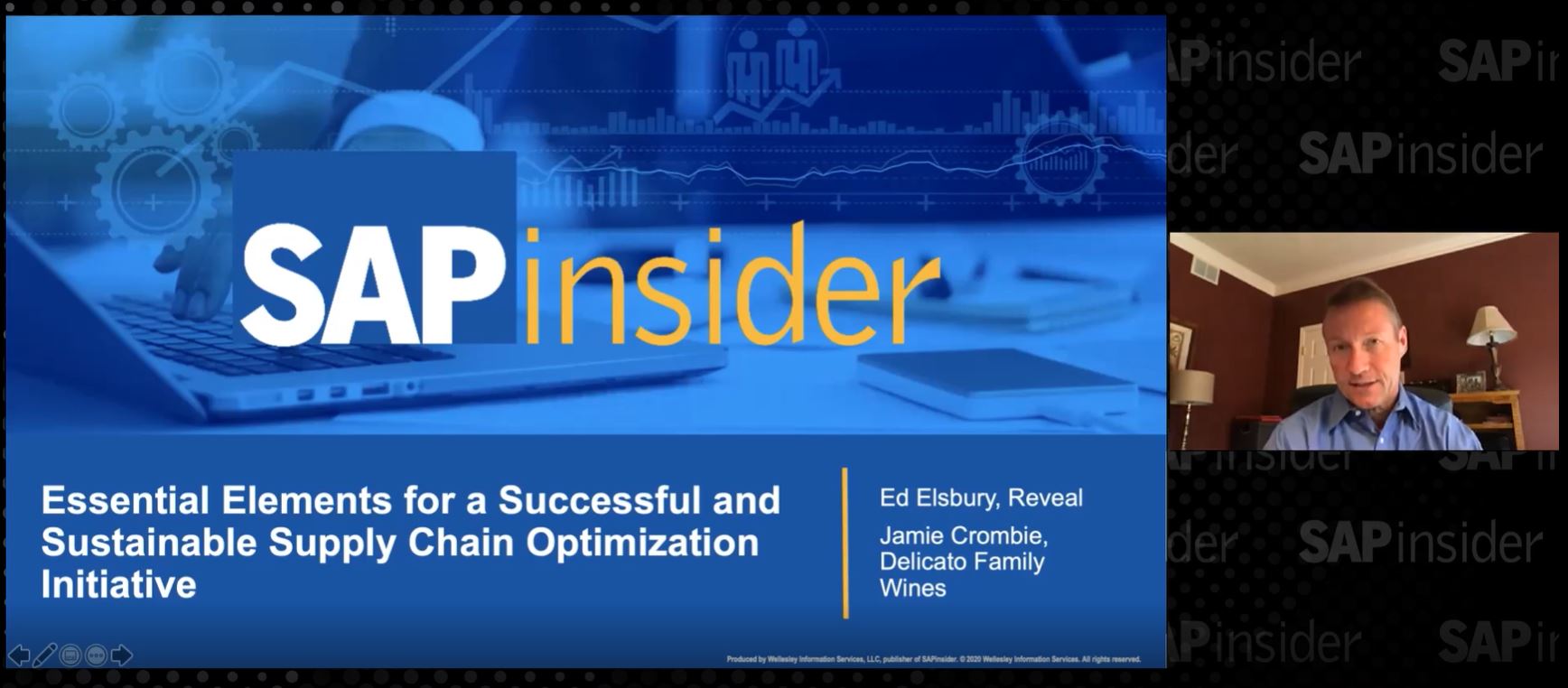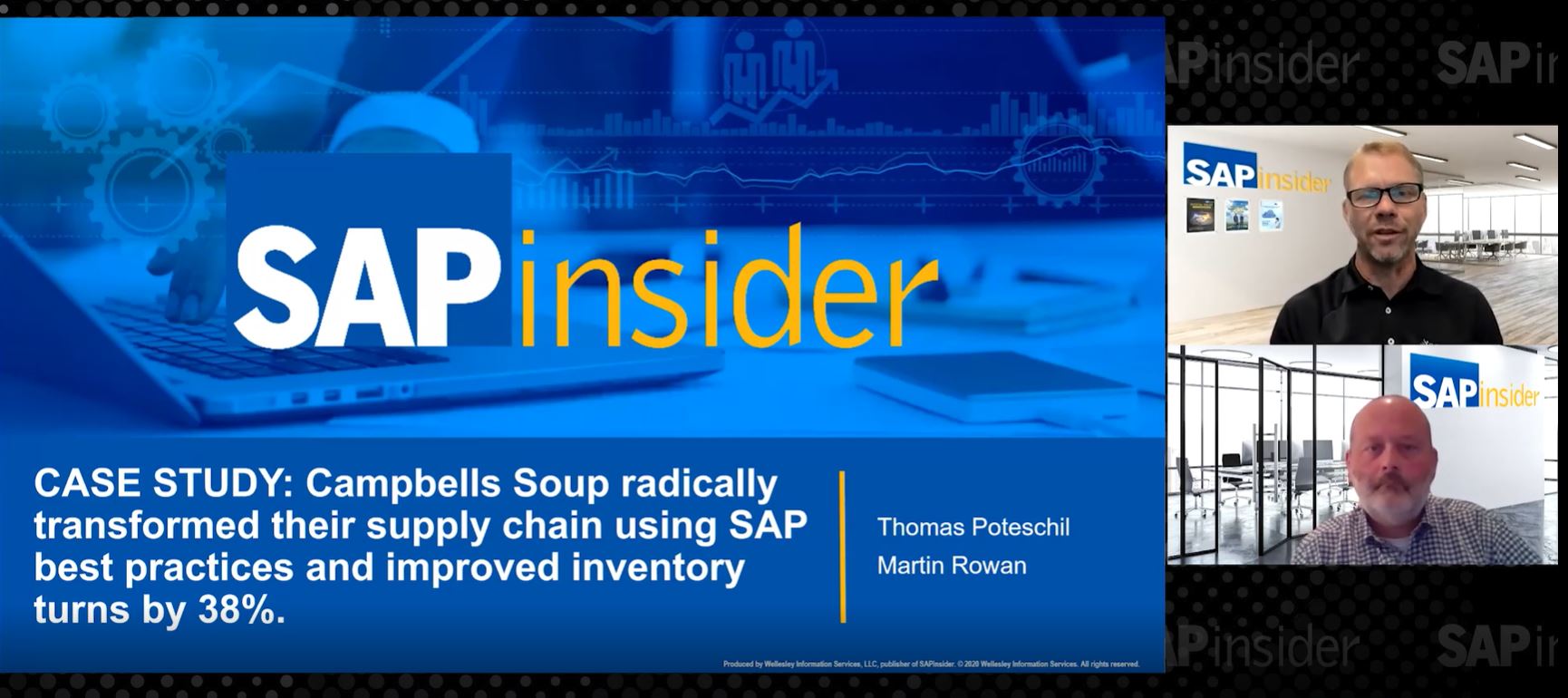Prepare for a Supply Chain Digital Transformation
SAPinsider recently surveyed SAP customers on digital transformation of the supply chain for an upcoming benchmark report, and our research and conversations with leaders revealed many lessons when it comes to preparing for this transformation.
What to Expect from the Transformation
Survey respondents that we identified as leaders — that is, organizations that consider themselves significantly ahead of the competition when it comes to digitally transforming their supply chain — shared the following results:
- Digital supply chain transformation initiatives met most leaders’ expectations. Of the leaders, 86% said that their initiatives met or exceeded their expectations. Following a common theme in our findings, 59% of leaders identified higher quality and better use of data as among the top benefits.
- Digital transformation initiatives lowered costs. In addition to getting access to and leveraging useful data, 59% of leaders cited lowered costs as a top result of implementing supply chain management (SCM) technologies.
- The initiatives led to more efficient planning and operations. The core platforms and most of the SCM technologies aim at exactly this, and 55% of leaders report that they have seen more efficient planning and operations as a result of their digital transformations.
Explore related questions
Benefits of Improving the Supply Chain Through Digital Transformation
Leaders report that they leverage their digital transformation to:
- Improve customer experiences. For many companies, this means taking orders that they may have been unable to fill prior to the transformation, meeting demand, allowing for more customization of products, and more on-time deliveries.
- Better inventory management. Leaders have reexamined how demand drives their material inventory using demand-driven material requirements planning (DDMRP) and strategic buffers and have improved their ability to better prepare for changing circumstances.
- Reduce business risk. Again, by using strategic buffers and DDMRP, leaders can reduce the risk of failing to meet demand or overreacting to a short-term spike in demand. Many leaders also leverage Internet of Things (IoT), mobile applications, and artificial intelligence (AI) for predictive analytics to collect data from the field and predict issues before they occur and proactively adjust.
- Accelerate innovation. Leaders set themselves apart by prioritizing innovation itself as a measure of success. This shows that leaders want to improve not only for the business benefits but also to innovate and try something new before the competition. This attitude of constant experimentation and always looking for a better way to run the business is part of what makes them leaders.
Leaders Will Build on Their SCM Investment
According to our research, leaders view improving the customer experience as their top strategic objective, which lines up with the top driver of supply chain digital transformation: increasing and varied customer demands for “faster, better, cheaper.” This prioritization of serving the customer elevates the importance of real-time drill-down into performance issues and real-time response to changes in demand and supply. This differs from respondents that we identified as laggards, which are behind the competition when it comes to a digital SCM strategy: 20% more leaders currently use these capabilities than laggards.
The survey results also revealed that leaders have started to leverage their solid foundation in SCM to continue building on their investment, with leaders significantly outpacing laggards in several key areas. For example, 19% of leaders have taken the next step and have started implementing AI for predictive analytics versus only 9% of laggards. In addition, a majority (57%) of leaders currently use mobile applications compared to only one third (33%) of laggards, and 39% of leaders have implemented IoT devices and applications versus 11% of laggards.
According to the research, over the next year, leaders will widen the gap in several areas, especially when it comes to advanced analytics: 36% of leaders say they will implement AI for the first time in the next 12 months, and 39% plan to deploy sustainability analytics. Leaders also plan to invest more than laggards and industry average respondents — those that are equal to or only somewhat ahead of their competition — in multichannel e-commerce order management and inventory integration, voice-enabled picking, transportation management systems, and QR smart tags.
What Does This Mean for SAPinsiders?
Based on the outcomes reported by leaders, the following takeaways will help ensure a successful digital transformation of the supply chain:
- Use this digital transformation to improve your organization’s use of data, reduce costs, and more efficiently plan operations. Of the respondents identified as leaders, 59% named higher quality and better use of data as among the top benefits, 59% cited lowered costs, and 55% reported that they have seen more efficient planning and operations. Most leaders collect real-time data and use it to improve how their businesses operate.
- Identify the areas of your supply chain where digital transformation can drive the largest business benefits. Leaders benefit more than laggards and industry average respondents in inventory management due to methods and technologies such as DDMRP and performance analytics. These technologies help leaders proactively adapt to and prepare for fluctuations in demand.
- Prioritize innovation. Leaders innovate for the sake of continuous improvement.
- Align strategic objectives with drivers and act on them. Leaders recognize that the needs of customers, partners and other stakeholders drive their digitalization strategies, and they take actions that directly address those needs.
Following this strategic guidance should help SAP customers digitally transform their supply chains.
For additional insights and lessons learned, look for the upcoming SAPinsider benchmark report Digital Transformation of the Supply Chain.
Pierce Owen can be reached at Pierce.Owen@wispubs.com.




